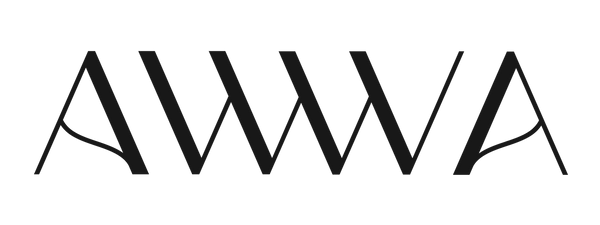
Tapu and Noa and how we use these ideas to find balance during our ikura
Tapu and noa are the threads with which te ao Māori is woven. Tapu and noa are not simply words, they are ideas. Because of this, translating them into english can be difficult, heoi ano, tapu can be understood as sacred, holy, to set aside, forbidden, or closer to the atua. Noa in turn can mean normal, unrestricted, ordinary, and free from tapu. Tapu and noa are often seen as binary, and as opposing forces of te ao Māori. In reality tapu and noa are complementary forces that are also fluid in nature. Tapu and noa are all about safety, they are tools that Māori use to make sure that we are safe, physically, spiritually and emotionally. The parts of tapu and noa that I am going to talk about in this blog are the tapu and noa around wāhine, te whare tangata, and te awa atua.
There are heaps of ideas around tapu and noa as it connects to wāhine that come directly from colonial forces. Many well respected academics said that Māori men are tapu and have mana, and that women are noa and dirty. Some of these colonial ideas include the reading of the ‘restrictions’ placed on wāhine Māori during te awa atua. These ‘restrictions’ were viewed by pākehā as results of being dirty. When I talk about restrictions I am referring to things such as; taking time away from chores, not cultivating kai, going away from the tāne to wānanga etc. This idea that these restrictions were enforced because our awa atua was unclean. This idea fits in with the pākehā narratives that subjugated women are dirty, unholy, and even at times demonic. Colonisers like Elsdon Best and William Goldie, all witnessed certain rites performed by wāhine during te awa atua that they incorrectly read as shameful. Engari, these notions come from the coloniser's own ideas and world view around the hierarchy of the sexes, a hierarchy that did not exist in te ao Māori before colonisation. This hierarchy has since been transferred onto Māori culture, allowing many of our men to wrongly assume that their place in Māori society is above that of wāhine Māori. It is vital for the continual growth of the culture that we, not only wāhine but tāne too, persistently interrogate these ideas that we think are our own.
Wāhine Māori hold a very special place between tapu and noa because of our whare tangata. In te ao Māori te whare tangata is seen as the bringer of life, as it is in many cultures. However it is also seen as the doorway to Rarohenga, because of our tīpuna atua, Hine nui te pō. The duality of being both the path in and out of the world is one of the reasons why wāhine Māori are so powerful. Te whare tangata including te tara, have the skill to mediate the borders between tapu and noa. Te whare tangata also has both the special power to whakanoa and whakatapu. To whakanoa means to make noa, by removing or lessening tapu. Whakatapu means to give or heighten tapu. This skill meant the wāhine Māori were often the guardians of the spiritual safety of their iwi, hapu, and whānau.

During te awa atua, the tapu nature of te whare tangata is at the forefront. This tapu can be viewed as originating from many different places. Some see ikura as a force that leaves a womxns mana or mauri exposed, therefore the tapu could be seen as protective in nature. Others believe that te awa atua is just that, the river of the gods. That the blood that flows is literally our tīpuna and atua who have come before us, therefore it is the blood itself that is tapu, and the wāhine are just the vessel. Others believe that wāhine are in a heightened space of power and connection to the atua during this time. Because of this, the restrictions are to ensure that wāhine can stay in this state of tapu. The different whakaaro around the reason for the tapu state of wāhine during te awa atua is most importantly reinforced by the feelings felt by wāhine Māori during this time. Many wāhine, without being aware of any of the knowledge that I have written about above, have an intuitive sense that their ikura is tapu. This knowing comes from te ao mārama, and is passed down from whakapapa lines. It is inherent in our mauri. This is also why many wāhine are able to pick up rituals from pre-colonial times without knowing them. We know what makes sense in te ao Māori, and we are able to perform what our tīpuna did through intergenerational muscle memory.
So how can we as wāhine Māori acknowledge the unique position our whare tangata holds in the world today? I want to note here that what I have written is made up of knowledge I have gathered. If the wāhine in your life say differently, and if honouring their whakaaro first feels right to you, then please do that. By writing this I do not wish to step on anyone's mana.
Decolonise your relationship to your whare tangata and tara:
Western forces tell us to be ashamed of our whare tangata and tara, this destructive thought directly impacts the tapu and noa powers of our whare tangata. You must work on ensuring you have a good relationship of connection to it. Look at it in the mirror. Honour and respect all of its functions. And also know what it’s functions are, get a cycle tracking app that can tell you from a scientific perspective what your whare tangata is doing. Not just during te awa atua, but also during the rest of your cycle. Pākehā ideas have meant that many of us have severed our connection to our whare tangata, we only think about it when we need to. But we need to work to reconnect with it, all the time. Try to check in with it everyday. Visualise it, look at it, smell it, touch it, engage with it.

Honour the noa and tapu:
When your whare tangata is in a more noa space, use that. The ability to whakanoa and whakatapu is not something to be ignored. Your tara has the power to balance the world. Know that and walk like you know it. When you feel tapu take time. Take time to rest and do NOT feel guilty. If you feel safe, strong and confident enough, start using this tapu to help you. Be aware that during this time the mauri of your whare tangata is extra potent. It has the potential to clear your path, and strengthen your intentions. I personally use this time to karakia on the things currently blocking me from achieving my goals, I talk with the atua and ask that the power of my ikura allow me to push through these obstacles. If you do this, please ensure you are doing so safely. Never try to push further than your capabilities.
Tapu and noa are vital forces in te ao Māori, and te whare tangata is the most powerful resource we have in relation to these forces. In order for the balance in the world to be restored, we must learn how to honour these forces, and why not start in our own body.
I would like to mihi to Ani Mikaere and Ngahuia Murphy, whose mahi in these subjects was and is still, ground breaking.
Words by Anna McAllister, Te Aitanga a Māhaki.
You can follow Anna on Instagram @nope.thank.you.very.much or on Twitter @nope_thank_u

